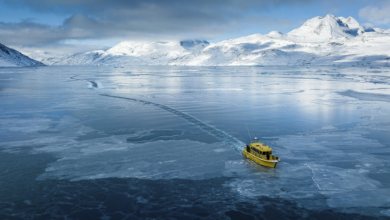Rosebank Oil Field Approval: Balancing Energy and Environment.

The UK oil and gas regulator’s recent clearance of the Rosebank oil and gas field development in the North Sea has sparked a heated discussion between supporters of energy security and environmental protestors.
The ramifications of this choice, environmental concerns voiced by activists, and the government’s position on striking a balance between energy requirements and climate goals are all explored in this article.
The Rosebank Oil and Gas Field Project: An Overview
As the largest untapped oilfield in the UK, the Rosebank oil and gas field is located off the Shetland Islands. The right to exploit this prospective energy source has been given to the Norwegian corporation Equinor and the British business Ithaca Energy.
Public Outrage and Environmental Concerns
Environmental activists have vehemently opposed the proposal, including well-known individuals like Greta Thunberg. Given the significant carbon emissions the development of the Rosebank field could produce, they contend that it is incompatible with the UK’s goal of a net-zero economy.
Effects on the Climate and Carbon Footprint
With the capability to generate 500 million barrels of oil, the Rosebank field produces a sizable amount of carbon dioxide when burned. Climate concerns could increase if this contributes to a significant carbon footprint that is equivalent to operating several coal-fired power plants for a year.
Government’s Perspective on Energy Security
The initiative is supported by the UK government, which emphasizes the necessity to balance energy security. According to government officials, oil and gas will continue to be essential for a sizable amount of the nation’s energy requirements until 2050, and abruptly ceasing domestic production could increase reliance on foreign regimes and hurt the economy.
Tax incentives and economic factors
It is noteworthy that the project’s acceptance includes a large tax benefit for the engaged international oil and gas juggernaut, Equinor. The distribution of such advantages has drawn criticism, particularly in light of the difficulty people are having paying their energy bills and the constrained expansion of domestic gas production.
Future Actions and Legal Challenges
Lawyers and advocacy groups have raised the prospect of legal challenges to the government’s decision. To contest or overturn the project’s approval, the future actions of opposition parties and campaign organizations will be crucial.
ALSO READ : Earth Can Become One Hot, Dry, Uninhabitable Supercontinent.
A contentious discussion about environmental sustainability and energy security has been triggered by the sanctioning of the Rosebank oil and gas production development. It will be difficult for the UK government to strike a balance between these issues, which calls for careful assessment of the long-term effects on the environment and the country’s energy needs.



